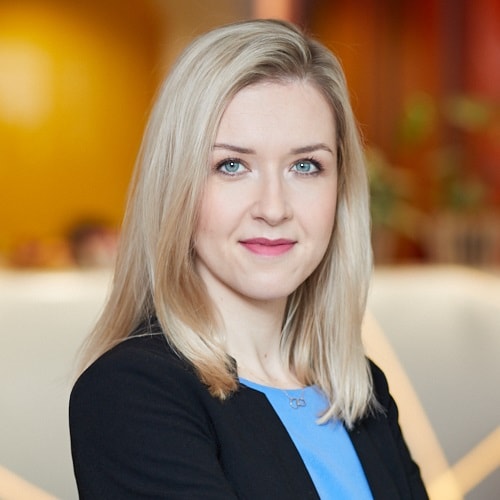{{item.title}}
{{item.text}}

{{item.text}}
How is the tax function currently managed in Poland, what challenges do CFO face and what are they planning in the near future?
We hope that the observations presented in the report will inspire you to make changes in the area of the tax function in order to increase its efficiency and maturity.
Most of the entities surveyed face numerous challenges, both external and internal. The tax function, as it stands today, is only to a limited extent ready to properly address these challenges and to address the challenges that the future brings.
More than half of the respondents (52%) are already in the midst of a transformation to build a mature tax function ready for the future challenges.
In contrast, a significant proportion of respondents (38%) are still in the process of organising the basics of the tax function in preparation for the future transition.
For 38% of respondents, the tax risk management process is only partially formalised. The remaining companies manage the risk in question in an informal and dispersed manner (24%) or do not have a tax risk management framework in place at all (21%).
21% of the surveyed CFO indicate that meetings of this kind take place in their companies on a quarterly basis, while in the case of 14% of respondents, they are organised once a year or less frequently. It is worth emphasising that ensuring a regular flow of tax information to the executive level is crucial in the process of building a mature tax function.
Only 24% of respondents indicated that the business departments in their companies cooperate with the finance and tax department on an ongoing basis. 41% of CFO believe that communication between the finance and tax department and the business departments in the companies they manage is limited.
In the face of the progressive automation of processes and the measurable effects it brings to the tax administration, it is worth making a decision to start a permanent process of searching for areas for automation in your own enterprise. Implementation of appropriate tools not only facilitates everyday work with taxes, but also - by moving away from time-consuming data processing - will free up resources for conducting more demanding analyzes or expanding knowledge and competences. Properly configured tools also allow for avoiding or early detection of possible "human errors", which are not difficult.
The role of the CFO in a company in terms of taxes has changed significantly in recent years and continues to change. The activity of the CFO in the area of technology is very important - both in terms of implementing comprehensive solutions covering the entire company or small automations that improve selected activities or tax processes. Nowadays, the CFO is a business partner for operational departments, providing information and tax analyzes and thus helping to effectively and profitably achieve business goals. After all, the CFO plays a key role in strategic planning, taking into account business trends, business stability, changes in regulations and security, including monitoring and mitigating tax risks.
Dorota Bokszczanin
Director
PwC Poland
The Cooperative Tax Compliance Programme is a new form of cooperation between the National Tax Administration (KAS) and large entities based on mutual trust and transparency beyond statutory obligations.
The scheme is designed for taxpayers with revenues in the previous tax year exceeding the equivalent of €50 million. A three-year pilot period is currently underway.
The co-operation agreement is concluded at the request of a taxpayer who receives a positive opinion from a preliminary audit on the correctness of the fulfilment of tax obligations and the efficiency and adequacy of the operation of the tax function (implementation of the so-called Internal Tax Supervision Framework). The audit covers the two preceding tax years and the time until the application.
Personalised approach and faster contact with the tax administration
Better contact with the tax administration shall allow for more efficient and correct tax settlements.
Certainty and predictability of public charge expenditure in return for transparency
The tax authority, after consultation with the taxpayer, is to provide answers to the taxpayer's questions regarding planned events.
Ensure the correct fulfilment of tax obligations and the maturity of the tax function
Passing the audit and joining the programme constitutes a confirmation that the taxpayer is fulfilling its tax obligations correctly and has the tax function to properly address the challenges that arise.
About the survey
The CFO Compass Tax Survey was conducted in Q3 and Q4 2022 among approximately 30 CFOs of companies with an average turnover of €50-100 million and employing an average of 101-500 people, operating in Poland in the following sectors, including: manufacturing (31%), energy and mining (14%), healthcare (14%), consumer goods and retail (10%) and others. Taking part in the survey allows you to determine the level of maturity of the tax function in six main areas: Business and Tax Environment, Business Operations, Tax Preparation, Risk Management, Internal Controls, and External Verification.
{{item.text}}

{{item.text}}














